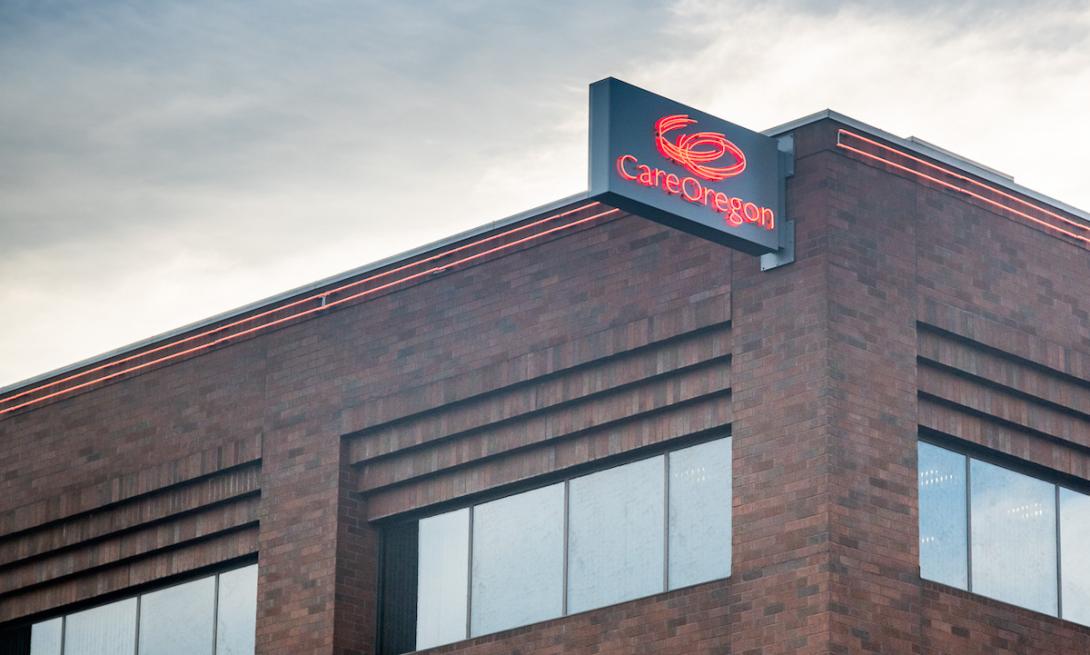
This article has been updated to include additional reporting about the merger review process.
Oregon health officials will hold two “listening sessions” this week to collect public comment about the proposed merger of Portland-based CareOregon, which oversees care to about 500,000 low-income Oregonians, into California-based Medicare insurer SCAN Group. Both are nonprofit organizations.
The hearings are the latest step in the first full-blown review ordered by a relatively new state program set up by lawmakers to ensure health care mergers and other large transactions don’t raise costs or hurt care.
But with so much about the giant deal still unexplained or being kept secret, there isn’t much for the public to analyze or comment on.
The two virtual public listening sessions are Wednesday, 7 a.m.-8:30 a.m. (Zoom link to join) and 4:30 p.m.-6 p.m. (Zoom link to join). Written comments can be submitted to [email protected]. Additional comments specifically regarding CareOregon's role in serving members of the Oregon Health Plan (through its oversight of two regional coordinated care organizations and participation in a third, Health Share of Oregon) are being received for a separate but parallel process at [email protected].
According to an Oregon Health Authority announcement, officials want to find out “what people think about this pending deal and how it could affect health care for Oregonians.” It hopes to hear from members who are served by CareOregon in greater Portland or by its two regional “coordinated care organizations” that act as insurers for the Oregon Health Plan, Columbia Pacific CCO and Jackson Care Connect. The agency wants to hear from members of the public, including health care providers who are in CareOregon’s provider network, as well as those representing organizations that work with CareOregon.
Proposed major deal sparked criticism
Under the proposal, a new entity, HealthRight Group, would be formed, with CareOregon and SCAN becoming the entity's arms. Documents submitted as part of the two nonprofits’ application for approval of the deal show that CareOregon has not told state regulators exactly how its operations would change under the new arrangement. SCAN officials say the new entity might seek to expand and provide Medicare insurance in Oregon and Washington, but that it is too soon to be certain. Representatives of the two entities said they have not shared detailed finances with each other, and they have not released any post-merger financial projections.
Large portions of the filings with the Oregon Health Authority’s Health Care Market Oversight program have been blacked out or withheld from public disclosure because they are deemed confidential.
But officials with the two nonprofits say their merger would benefit Oregonians. They said in their joint filing that as nonprofits they are better positioned to provide quality service to Medicaid members, compared to for-profit insurers that employ “unsavory behaviors” in order to gain high profits from their Medicaid business.
“HealthRight has the opportunity to be a better partner” to the state and federal governments, as well as to individuals, they wrote.
The two insurers announced the deal and submitted their application to the program last December.
Early this year a prominent Oregon health leader, John Santa, raised concerns about the proposal, urging a full and detailed review of its impact on low-income Oregonians. And the state announced an extended process later that month.

According to the documents filed publicly, the merger would join two already-giant organizations. CareOregon has 1,100 employees; SCAN has 1,400, according to the application the two submitted to the mergers and acquisitions program.
CareOregon focuses primarily on serving low-income members of the Medicaid-funded Oregon Health Plan. Through its two regional care organizations and through work it does for Health Share of Oregon — the Oregon Health Plan care organization serving the greater Portland region — CareOregon provides coverage to 500,000 Oregonians. In 2022, it reported $80 million in operating profit on revenues of $2.4 billion. It had net assets — all assets minus all liabilities — of $712 million, mostly in stock, bond and cash investments.
SCAN Group focuses on providing Medicare insurance plans for the elderly in California, Arizona, Texas and New Mexico. It serves 270,000 members. In 2021, the latest year for which information has been released, it had an operating profit of $82 million on revenues of $3.6 billion. Its net assets stood at $1.2 billion, mostly in investment portfolios of stocks, bonds and cash.
Thus far, a smattering of formal comments have been filed with the state. Some observers criticized the proposal, saying the merits had not been demonstrated and faulting the high pay of top CareOregon and SCAN executives. Others praised the plan, saying it would improve health care delivery in the state.
Among the benefits, the two entities told the state, was that administrative costs could be spread over a larger base. They said they likely would merge their finance, information technology, human resources and legal operations. The two organizations also have their own call centers, and they have discussed cross-training the teams to reduce the expense of handling periods of heavy call volumes.
They also said that jointly they could afford to buy specialized services that they cannot now afford. They gave the theoretical example of buying a “customer relationship management system.”
They also said that large for-profit insurance companies such as UnitedHealth Group, Molina Health and Centene, with their economies of scale, are able to provide specialized Medicaid insurance services that smaller nonprofits cannot afford.
CareOregon and SCAN “by working together …can do more for our members,” they wrote. “CareOregon and SCAN anticipate that we will develop, expand or improve programs in Oregon and elsewhere, but have not yet developed specific proposals, associated timelines or projections for costs, financing, benefits or populations served.”
One supporter of the merger is Dr. Sharon Meiran, a Multnomah County commissioner and an emergency physician.
“This alliance holds great promise for creating a compelling, sustainable model for community-based health care, offering a crucial alternative to large national companies that are dominating the Medicare and Medicaid markets throughout the country. For-profit players threaten the locally controlled, community-based, non-profit payer model that works for Multnomah County residents,” Meiran wrote in her letter of support.
CareOregon reserves hang in the balance
In the proposed deal, concerns Santa and others raised have centered on the fate of CareOregon’s $700-plus million investment portfolio.
CareOregon accumulated its large reserves from many years of serving the taxpayer-funded Oregon Health Plan.
As of the end of 2022, CareOregon had accumulated an investment portfolio of $732 million.
In interviews earlier this year, SCAN and CareOregon officials responded slightly differently to questions about the fate of CareOregon’s reserves when asked by The Lund Report.
“I think that the sense is that we're going to look for ways to provide greater success to all of our entities, and there will be money flowing back and forth, we won’t deny that,” CareOregon CEO and President Eric Hunter said.
Sachin Jain, SCAN CEO, however, said it would be unfair to assume CareOregon reserves would be used to fuel SCAN’s ongoing expansions into other states.
Documents SCAN and CareOregon submitted to Oregon regulators for the merger proposal do not fully explain what would happen long-term to CareOregon’s wealth if CareOregon were to become a subsidiary of SCAN.
Initially, CareOregon would have to donate $70 million to HealthRight, and HealthRight and CareOregon officials would make subsequent financial decisions, the documents said.
The goal of HealthRight is to create a giant health care insurance system that can compete with “national and super-regional” insurers, and can expand into other markets, SCAN and CareOregon said in their submittals. The filings do not specify any restrictions to prevent CareOregon's wealth from being used to fund expansions into other states
Some observers said that money should be used to serve Oregon residents because it came from Oregon’s Medicaid system.
In his written comment, Santa, a prominent Oregon health care leader and longtime member of the volunteer board overseeing the Oregon Health Authority, wrote that given CareOregon’s roles, “any change in its governance or financing runs the risk of destabilizing the care of hundreds of thousands of patients … Those assets are the community’s assets. They should be available for CareOregon’s members if conditions change.”
Further steps in the review process include the state merger program evaluating public comments and completing its questioning of CareOregon and SCAN, anticipated to be complete by mid-January. According to a spokesperson, “Once the review is complete, HCMO will publish a report with our findings and submit a recommendation to (the Department of Consumer and Business Services) about whether to approve the transaction.”

What a scam.
The public is being kept in the dark for good reason.
I especially appreciate the prospect of "buying a 'customer relationship management system.'" That will help us swallow what is being shoved down our throats.